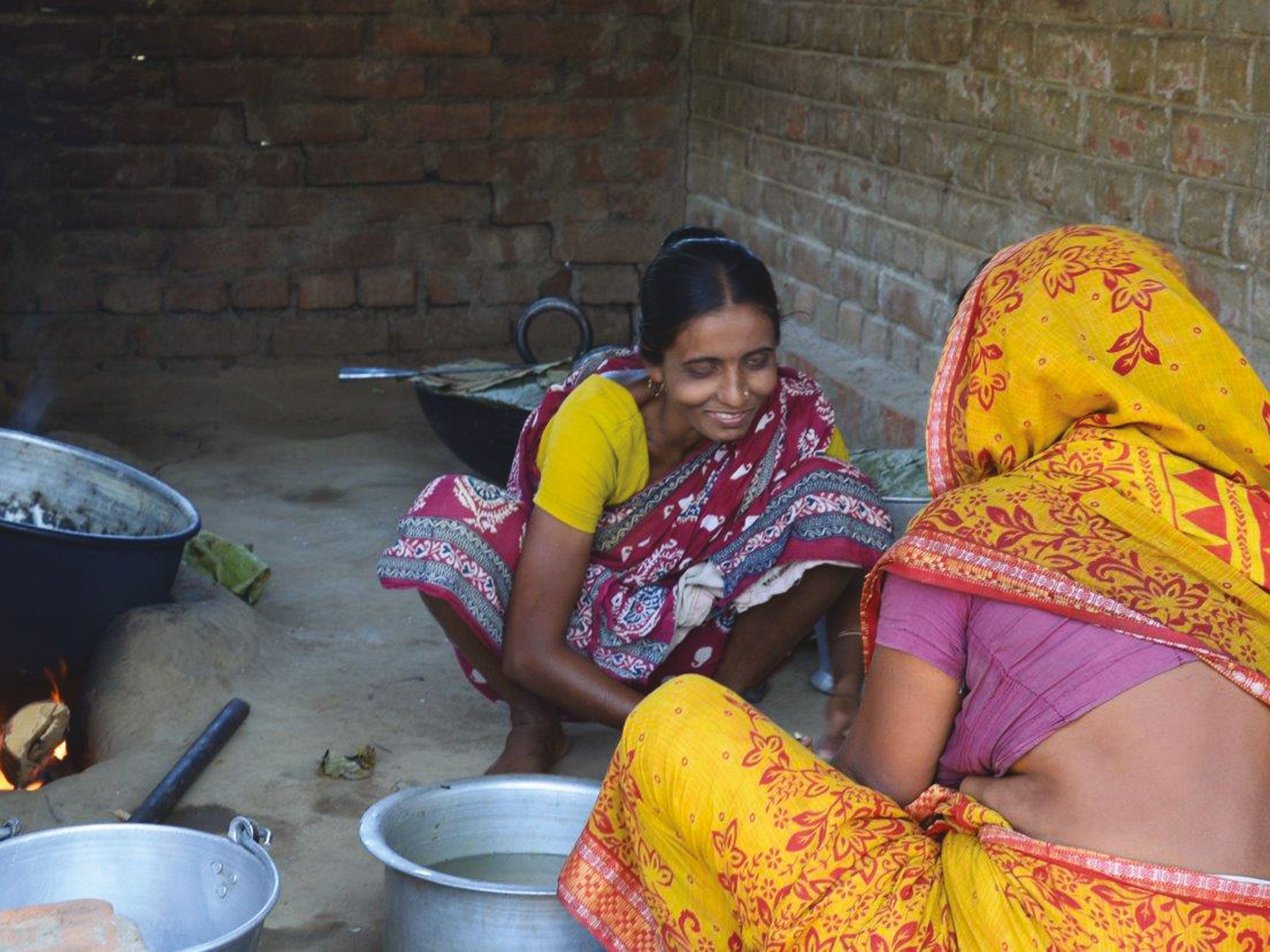Food books round-up: Nurturing the soul and what it means to be truly full

Your support helps us to tell the story
From reproductive rights to climate change to Big Tech, The Independent is on the ground when the story is developing. Whether it's investigating the financials of Elon Musk's pro-Trump PAC or producing our latest documentary, 'The A Word', which shines a light on the American women fighting for reproductive rights, we know how important it is to parse out the facts from the messaging.
At such a critical moment in US history, we need reporters on the ground. Your donation allows us to keep sending journalists to speak to both sides of the story.
The Independent is trusted by Americans across the entire political spectrum. And unlike many other quality news outlets, we choose not to lock Americans out of our reporting and analysis with paywalls. We believe quality journalism should be available to everyone, paid for by those who can afford it.
Your support makes all the difference.Recipe books exhort, enthuse, whip up passions and voracities. Food books, mercifully, are quieter and contemplative. The best of them explore histories, societies, psychologies and what it means to be human.
Cooked Up, edited by Elaine Chiew (New Internationalist, £9.99) is a rich collection of short stories by various writers where food is a weapon or armour, an expression of deep conservatism or freedom, a metaphor for our times and much more besides.
In Krys Lee's "Fat" for example, the hero, a young Korean man, gorges, fattens himself to avoid military service; "Walking the Wok" by Kenyan American Mukoma Wa Ngugi, has Chan, a Chinese trainee chef who daringly breaks strict cooking codes and champions heterodoxy.
Ben Okri creates a "stoku", an amalgam of Haiku and a story, in which the lucky sit at a table and eat aplenty while the starving look on behind them, murmur and do not revolt.
Proust wrote "When nothing remains of the past, after the destruction of things, alone, frailer but more enduring... taste and smell remain for a long time, like souls remembering, hoping, waiting..." For Nigel Slater, American Chef Ruth Reichl and others, food holds memories and resolves past traumas. Sasha Martin's Life from Scratch (National Geographic Society, £17.99) belongs to that burgeoning genre. When she was one years old, she burnt two fingers on an open grill and so began this journey where dishes – from 195 countries in the world – are milestones in her life, and what a stormy life it is. The conceit, part personal redemption and part food travelogue, doesn't quite work. But her story is compelling.
Breadline Britain (Oneworld, £9.99) tells the stories of those who are voiceless. Stewart Lansley and Joanna Mack forensically dissect poverty in this, the fifth richest country in the world. Using criteria based on what the majority agree are essential for life, they argue that food deprivation is a predicted policy outcome. Thousands of families subsist on cheap, bad grub; parents don't eat so kids can; sometimes there are only biscuits for supper. Their lives could be turned round by more benevolent political choices. But global capitalism operates like a machine. Human suffering is of no concern to those who own the world. All politicians should be made to read this book.
Was it ever thus? Yes. During colonialism, some famines were the result of deliberate colonial policies. Dictators deny food to the needy because they can. Which brings me to Feasts and Fasts: A History of Food in India by Colleen Taylor Sen ( Reaktion Books, £25), an ambitious tome which explores India's various dietary conventions and religions through the ages. That is the problem. Too much information makes the book heavy and indigestible.
But read a few pages each day, bypass the long lists and there is much to savour. The early history of natives, travellers and migrants and evolution of regional diets is erudite and fascinating.
Finally to Appetites for Thought, Philosophers and Food by French philosopher Micheal Onfray (Reakton Books, £14.95). Dietetics have long preoccupied famously deep thinkers. Ludwig Feuerbach ("We are what we eat"), Kant and others obsessed about nutritional impurity and its effect on man's essence and nature. Nietzsche averred that beer and stodge made German civilisation heavy, its spirit "bland" while Rousseau extolled the virtues of sweet milky products and believed meat and salt made men violent. Included are some loonies too, among them Charles Fourier in whose utopian world people have unrestrained sex and oceans froth with sweet lemonade. This svelte little book is surprising and delightful. Only a Frenchman could have written so delectably about food and philosophy.
Join our commenting forum
Join thought-provoking conversations, follow other Independent readers and see their replies
Comments